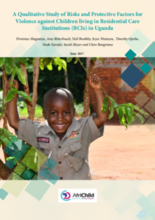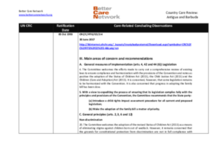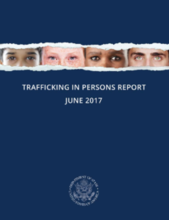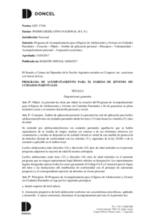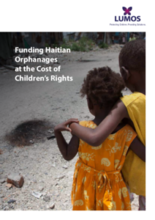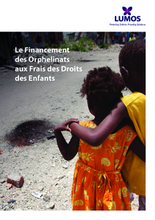Displaying 841 - 850 of 1482
The aim of this study was to identify the processes that support the good results obtained by the teenagers and young persons who reside in the largest residential centre in the county of Iași, Romania and their concerns regarding the future.
This qualitative study of risks and protective factors for violence against children living in
Residential Care Institutions (RCIs) for children is part of the wider qualitative study on violence
against children in Uganda. The study complements the national wellness survey that sought to
measure the prevalence of violence against children in household, schools and the community from
a quantitative perspective
This report is based on findings the Nationwide Assessment of all Child Care Facilities (CCFs) in Zambia, which aimed to gather evidence for the purpose of updating baseline information pertaining to the condition of all Child Care Facilities (CCFs) in Zambia; in line with the Minimum Standards of Care for Child Care Facilities (MSC), United Nations Convention on the Rights of the Child (UNCRC) as well as the UN Guidelines for the Alternative Care of Children.
This country care review includes the care-related Concluding Observations adopted by the Committee on the Rights of the Child during the seventy-fifth session (15 May 2017 - 2 Jun 2017) of the Convention on the Rights of the Child.
The Trafficking in Persons Report is an annual publication of the U.S. Department of State, providing a snapshot of human trafficking around the world with attention to key issues, trends, standards, and updates.
La presente ley tiene por objeto la creación del Programa de Acompañamiento para el Egreso de Adolescentes y Jóvenes sin Cuidados Parentales a fin de garantizar su plena inclusión social y su máximo desarrollo personal y social.
The present study investigates the relationships among children's history of maltreatment, attachment patterns, and behavior problems in Japanese institutionalized children.
This article focuses on the assessment of the effects of early institutional care and compares three longitudinal studies from Romania, Greece and Hong Kong/China.
In this report, Lumos investigates the funding patterns of Haitian orphanages as well as the ramifications of orphanage life for the children raised within them to better understand why orphanages continue to flourish in the country.
Pour comprendre la raison pour laquelle les orphelinats continuent de se développer en Haïti et la façon dont ils affectent les enfants, Lumos a mené une enquête sur les modes de financement et les ramifications de la vie en orphelinat sur les enfants élevés entre leurs murs.


